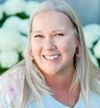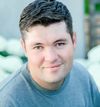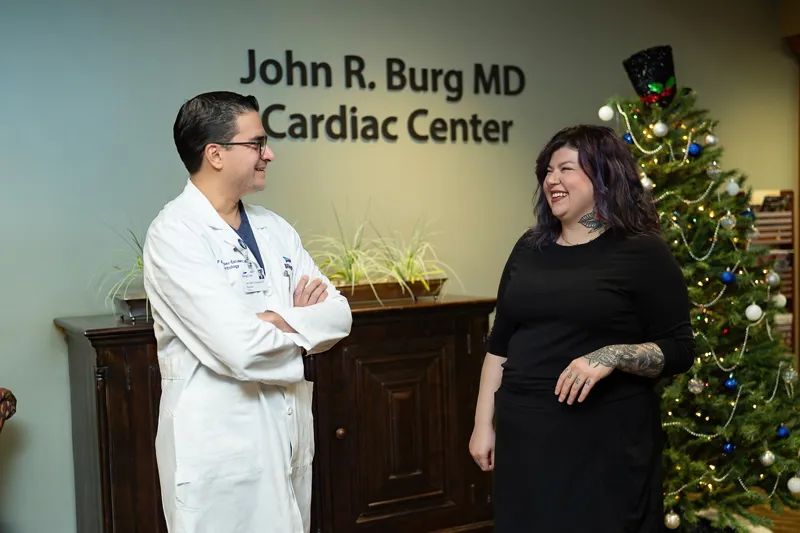
New Life, Healthy Heart
Busy RN beats hereditary heart disease
Cherish Downing and her two sons have a longstanding wintertime tradition. Every year at the end of December, they visit Wild Bill Lake near Red Lodge to celebrate her youngest son’s birthday. They all look forward to the trip, but last year, Cherish could only watch as her boys, Fisher, 9 and Lucas, 12, threw snowballs, built snow forts and played in the snow.
“I couldn’t do anything,” Cherish says. “I just had to sit on the side. It was depressing. It was not any quality of life.”
In 2020, Cherish was diagnosed with hypertrophic obstructive cardiomyopathy (HOCM). For years she dealt with high blood pressure, chest pain and extreme fatigue. Any exertion, even walking from the parking area to the lake, was difficult, but this year, thanks to Billings Clinic Cardiologist and Certified Heart Failure Specialist Dr. Juan Pablo Rodriguez, Cherish didn’t have to sit back and watch. She jumped right into all the fun activities with her boys.
HOCM is a hereditary disease that causes the heart muscles to thicken. In Cherish’s case, it restricted blood flow from the left ventricle. It limited oxygen supply to the rest of her body, and caused shortness of breath, chest pain and fatigue. Untreated, HOCM leads to heart failure and can cause sudden cardiac arrest.
HOCM affects about one in 500 adults worldwide, or 0.2 percent of the population. However, it's probably underdiagnosed, and estimates suggest that it may affect as many as 1 in 200 people.
“At first, I didn’t realize it was limiting because I was subconsciously avoiding any exertion or any adversity,” she says.
Cherish first noticed symptoms in 2019, but her general practitioner told her it was probably just anxiety. Then in April 2020, she was hospitalized for an unrelated illness, and her physician ordered an echocardiogram. The test revealed HOCM, and an appointment with a cardiologist was scheduled immediately.
Cherish, a registered nurse, works in the Intermediate Care Unit at Billings Clinic. Like all patients, she had access to her chart, and while recovering in her hospital bed, she did a deep dive into HOCM and her treatment options.
“I was feeling a lot of uncertainty,” she says. “I wasn’t even thinking about me. I was thinking about my kids.”
Because HOCM is hereditary, her sons have a greater likelihood — almost 50 percent certainty — of developing the disease.
“I went on every medication you can possibly think of all the way through 2023,” she says.
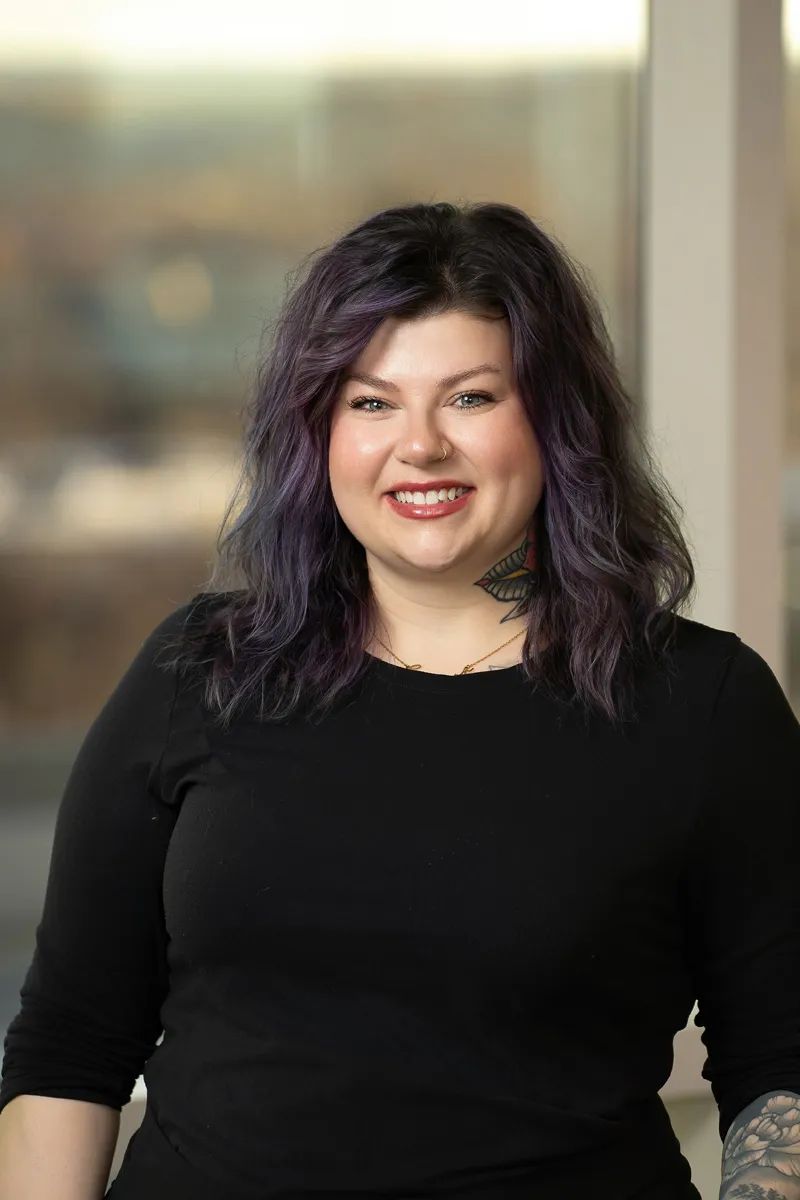
Eventually, the cardiologists she was seeing told her they had run out of options, and she should learn to live with the disease. But Cherish wouldn’t take no for an answer. That’s when she sought out Dr. Rodriguez.
“He was the first one to say, you don’t have to live like this,” Cherish says.
After some testing, he prescribed a medication called Camzyos, which was newly approved by the FDA in 2022.
“I couldn’t believe what they’d said,” Rodriguez says. “I knew I could try this new medication to help her feel better. We tried it and in a few weeks she was better.”
Because the symptoms of HOCM can mirror the symptoms of other diseases, it often goes undiagnosed or is diagnosed only after it has progressed to a serious condition.
As a cardiologist and certified heart failure specialist, Rodriguez is one of only a few physicians in the state with advanced training in diagnosing and treating disorders of the heart. He routinely treats patients for HOCM.
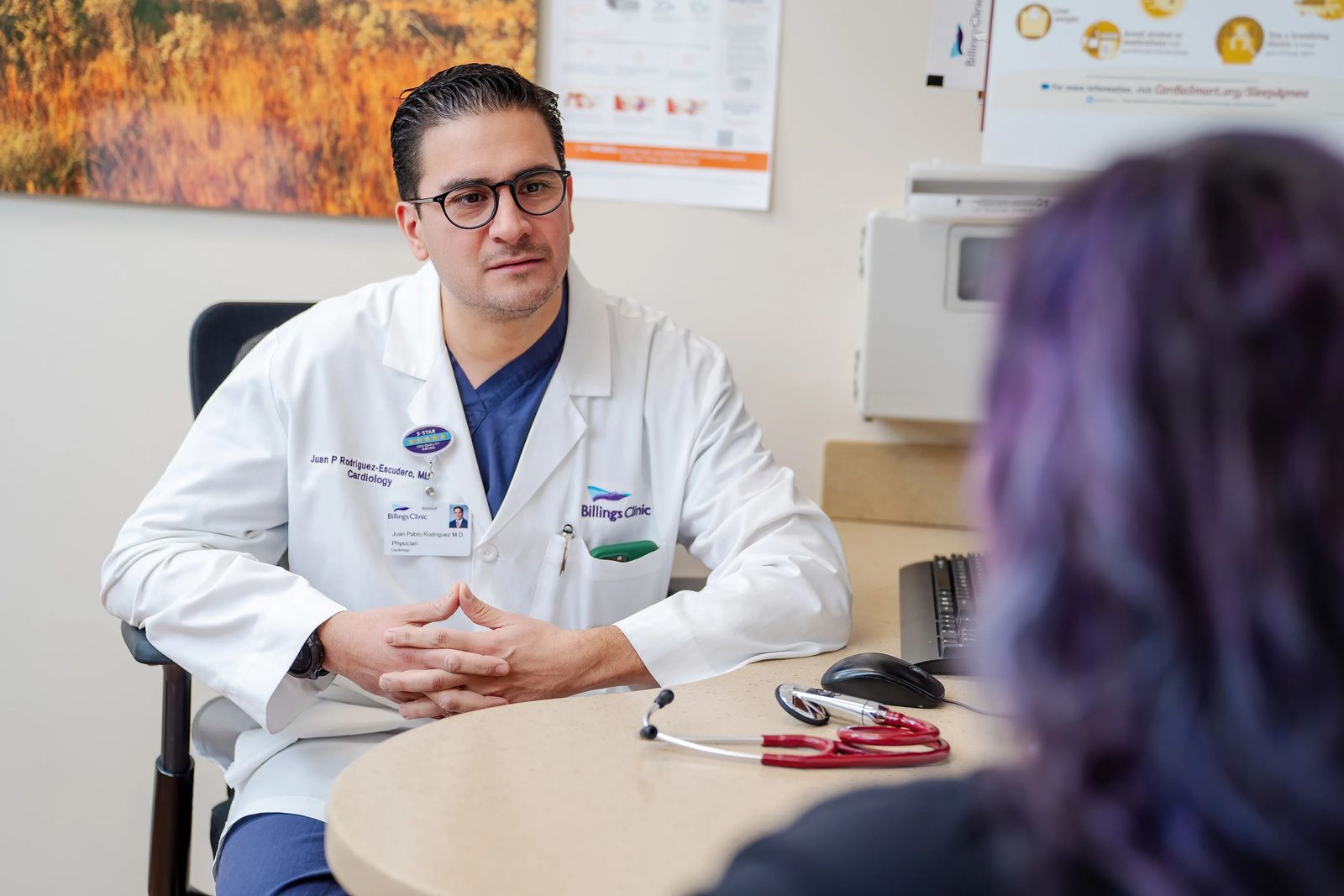
“Early recognition of the disease is key here,” Rodriguez says. “If you have any of these symptoms, please find a cardiologist or heart failure specialist. There are plenty of people out there who are experiencing these symptoms, and they are not recognized.”
Before seeing Rodriguez, Cherish was diagnosed with class IV heart failure, the most advanced stage. Now after treatment, she no longer meets the criteria.
“Had this been diagnosed with HOCM in 2020, I would likely have avoided that diagnosis,” she says. “Now my heart is as good as a newborn baby’s.”
For early detection of HOCM, Fisher will have bi-annual echocardiograms until he’s 12, and Lucas has annual echocardiograms.
“It puts my mind much more at ease,” Cherish says. “It can develop anytime for them.”
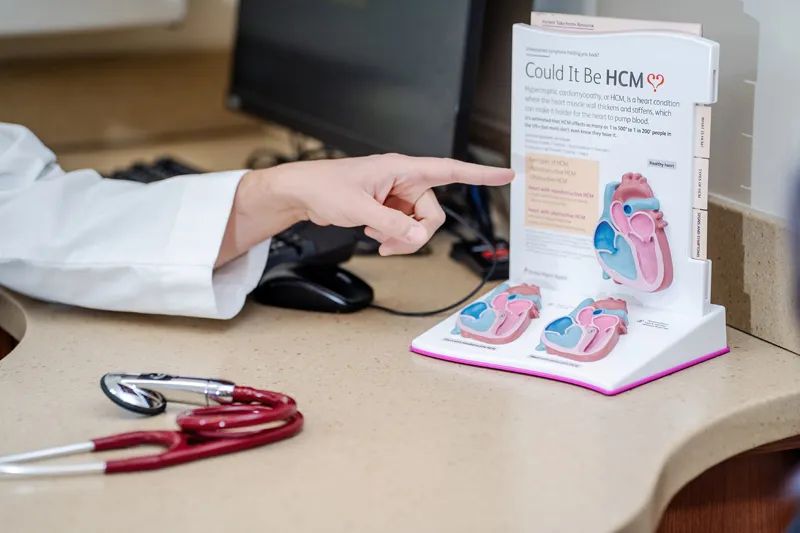
Cherish believes that her experience in the medical field offered her an advantage during her diagnoses and treatment. She understood the importance of education. She didn’t hesitate to advocate for herself, and didn’t wait for information from her doctors. Cherish researched HOCM herself and thoroughly understood the disease, its potential outcomes and treatments. It empowered her to continue to pursue treatment after her doctors essentially gave up.
“Physicians have an extremely hard job and there’s often no opportunity for education and advocacy,” she says. “You have to be your own advocate, and ask questions.”
Cherish is looking forward to even more outings with her boys, and she loves her job as a nurse. Rodriguez is equally excited for what’s ahead for her.
“She has a brand-new life,” he says. “It’s as if she’s a new person now.”


